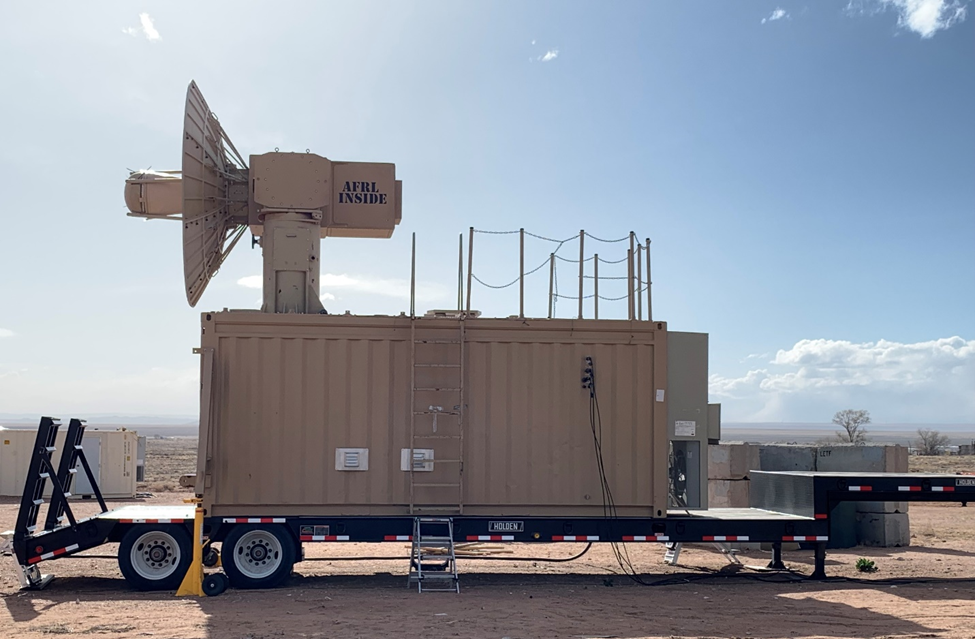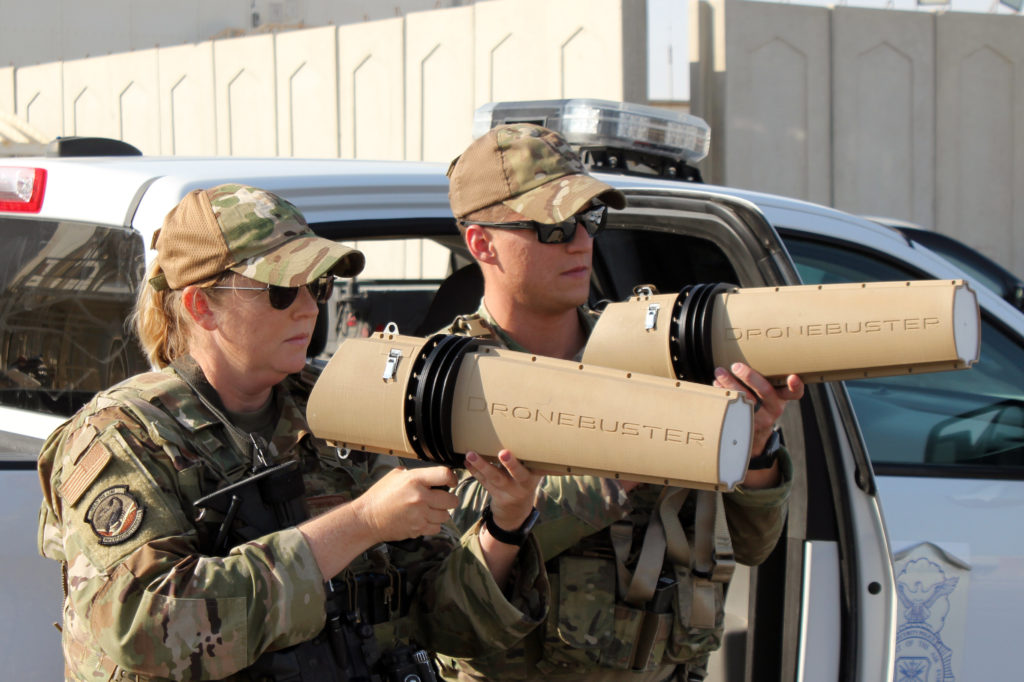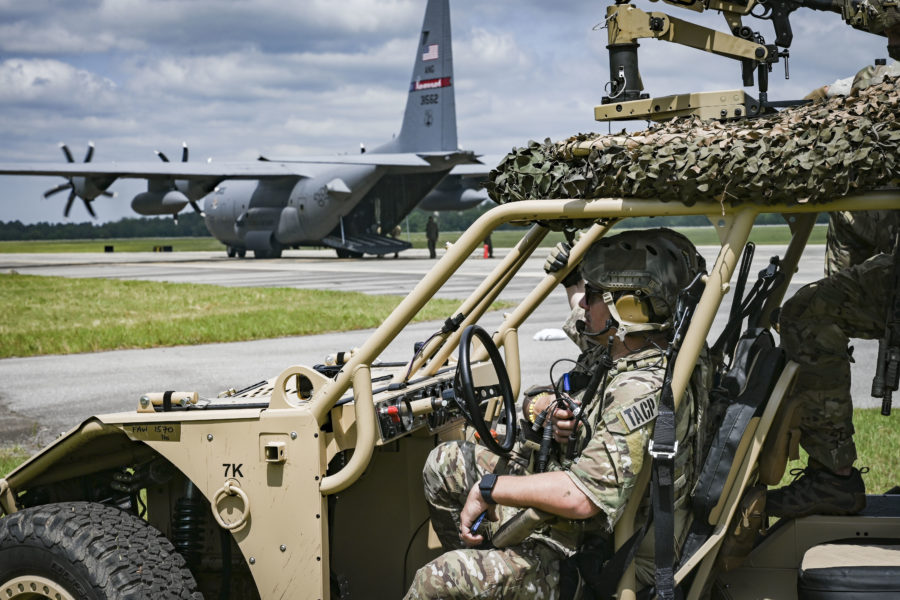Members of Congress want to know how the Air Force plans to defend remote or forward-deployed airfields as part of its Agile Combat Employment strategy, in which the service disperses small teams of Airmen and aircraft across a wide area to complicate an enemy’s targeting process.
“[W]ith the proliferation of threats and the Air Force’s plan to deploy in remote locations independent from other major service elements, the committee is concerned these critical assets will lack sufficient air defense,” wrote the House Armed Services tactical air and land forces subcommittee in its markup of the fiscal 2024 National Defense Authorization Act.
By February 1, the committee expects a report outlining the Secretary of the Air Force’s plan to provide expeditionary, mobile air defenses to austere airfields, along with the estimated cost, timeline, and additional authorities which might be needed to develop and procure such defenses.
Base defense was a theme of the subcommittee’s markup, which can direct the Pentagon and the services to come back with reports on issues of concern for certain legislators.
One such report comes with a March 1 deadline for the Secretary of Defense to submit an assessment on how military bases plan to defeat unmanned aerial systems (UAS) using directed energy such as high-energy lasers or microwaves. The Secretary of the Army was also called on to submit a plan for better integrating the findings of the Joint Counter-small Unmanned Systems Office (JCO) into the military’s defense against tiny drones.
Lawmakers are also putting money toward the issue—the chairman’s mark includes an extra $58 million or so above what was requested for counter-UAS programs. The Air Force and other services have performed small-scale experiments with various counter-UAS systems for years. However, the committee wants to see more progress adopting systems at a larger scale across the military, especially systems recommended by the JCO.
“The committee is concerned that the military services, in particular the Army, have neither transitioned proven systems, specifically systems currently operating in combat environments with [U.S. Special Operations Command] or systems that have been recommended by the JCO, to production at scale, nor acquired them for wider deployment across the joint force,” the committee wrote.
Lawmakers seemed particularly interested in directed energy technology, writing that “high-power microwave systems must continue to advance the effectiveness of waveforms against new UAS software and hardware.”

One such system, developed by the Air Force Research Laboratory, is thorough —the Tactical High-power Operational Responder. Recently, AFRL tested the experimental weapon against a swarm of drones at Kirtland Air Force Base, N.M. The system consists of a shipping container-like box with an antenna dish on top that can aim bursts of high-power microwave energy along a wide beam in order to disable groups of small drones, making them drop from the sky.
Though AFRL declined to say how many or what kinds of drones were downed in the test, it touted that the weapon can be carried in a C-130, can be quickly assembled on the ground, and can leverage other detection and targeting systems or use its own. In 2022, the lab selected the company Leidos to build “Mjolnir,” a follow-up to THOR that the lab hopes will improve on its capability, reliability, and manufacturing.
The House panel did not mention THOR specifically in its markup, but it called on the Secretary of Defense to provide a report with more information on the use of directed energy weapons against drones; on how the technology can be integrated into existing security infrastructure; on what effects they might have on the nearby airspace, people, and equipment; on how to train service members to use them; and on how to set up, maintain, and buy large numbers of such weapons.
Directed energy weapons are not the only way to bring down a drone. In January, U.S. troops used a Coyote air defense system to shoot down two drones attacking their base in southeastern Syria. The Coyote is essentially a short-range surface to-air missile that complements air defenses built for other threats such as missiles and crewed aircraft. Integrating those systems and their relevant sensors is a hurdle military planners hope to clear on their way to creating a coordinated air and missile defense system for downrange facilities.
“What I focus on … is advocating for a layered, integrated air and missile defense capability, from the upper tier all the way down to counter-small UAS—a quadcopter flying 50 to 100 feet off the ground at 10 or 20 miles an hour—and everything in between,” U.S. Central Command Deputy Commander Lt. Gen. Gregory M. Guillot said in January.
Developing new defenses and integrating them is particularly important as U.S. military planners contend with the “daily threat” of home-brewed air attacks in areas like the Middle East.
“If you’ve got an Amazon card and access to a hand grenade, you’ve now got an over-the-horizon weapon capability,” Rear Adm. Curt Renshaw, director of operations for CENTCOM, said in January.
Guillot’s goal is to integrate information about incoming threats onto one “pane of glass” rather than on five or six different screens or even separate buildings, he said.

Those same concerns seem to apply to the Pacific theater, where Air Force planners hope to strike a balance between protection and mobility.
“Base protection is also imperative, and it can take many forms. At the same time, being a target isn’t our main focus,” Brig. Gen. Paul R. Birch, then-commander of the 36th Wing at Andersen Air Force Base, Guam, said in March. “Rather, the focus is getting our airpower off the ground in a way that is lethal.”
Officers with the Air Force’s 388th Maintenance Group also emphasized maneuverability when describing contingency locations where F-35s could be refueled and rearmed with as few as a dozen Airmen.
“Get the jets back up and back in the fight, but then be ready to defend yourself and survive, and when the C-130 comes, get the heck out of there,” Col. Jeremy Anderson, commander of the 388th Maintenance Group, told Air & Space Forces Magazine earlier this month. “That’s the whole point, because by now the enemy has figured out exactly where you’re at, and you are about to get attacked. So load up, get out, and go to the next spot.”
